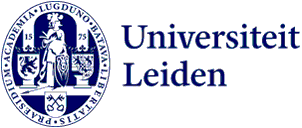
Test expert Coen van 't Veer: 'The Dutch final exam is a good measuring tool'
Not passed your Dutch exam? Then there’s no HAVO (Higher General Secondary) or VWO (pre-university) diploma for you, says the Inspectorate of Education's Inspector General. This comment fuels a discussion on an exam that is already under fire. The final exam for Dutch is said to be uninspiring, too niche and not suitable for the target group. Nonsense, thinks teacher and test expert Coen van 't Veer. 'The exam does what it is supposed to do.'
'It surprises me that my academic colleagues criticise the Dutch final exam so much, without having studied it enough,' Van 't Veer begins. 'The exam is meant to measure students' reading skills, and it does that very well.'
Importance of reading skills
'That testing of precisely reading skills is important, Van 't Veer believes: 'Coincidentally, the Inspector General of the Inspectorate of Education issued a report last week, showing that one in five HAVO and VWO students pass their final school exams, but they fail on Dutch. That picture reflects the decline in reading skills we see at university. It is therefore good to emphasise the importance of reading skills by dedicating an exam to something so important.'
Training in setting exams
Perhaps, Van 't Veer suspects, the criticism is also due to the fact that many teachers and academics are actually not very good at setting exams themselves. 'Whenever I have to invigilate keen on exams at all. I think every teacher in primary, secondary and higher education should be trained in setting and correcting tests and exams. This is especially true for teachers who correct final exams. It is actually strange that people who graduated 40 years ago are allowed to prepare and correct exams without any further training.'
So what should those teachers learn on such refresher courses? 'A positive, empathetic approach,' says Van 't Veer resolutely. 'The pressure put on the exams has caused anxiety in a lot of colleagues, which has led them to mark very strictly. I’m not saying we should play the fairy godmother and approve everything, but certainly with open questions you can learn to use a green pen instead of a red one. Many teachers focus on what goes wrong rather than what’s right. What does that student or pupil actually mean? When formulating questions, start with the answer: what do you want to know and how will you measure it? If people get a better understanding of test-taking and assessment through training, I’m sure we will do more justice to students, including students at university. And that’s something they deserve.'
'Trust the teacher'
And then there are the critics who argue that HAVO and VWO pupils should not be tested on reading skills at all in the final exam, but on literature or writing skills. Van 't Veer has a tip for them too: 'Trust the teacher. All those subjects really do come up during lessons and school exams. In addition, many enthusiastic secondary school teachers provide enrichment and in-depth modules. I myself, for instance, set up a reading club for Dutch-Indian literature. In regular lessons, we cover Max Havelaar and the context of the book, among other things; in the reading club, we read the text in line with a postcolonial approach. That often gives students some surprising insights. It teaches them to read more critically and also gives them a better understanding of how mechanisms of inclusivity and exclusivity work in our current society. '
Coen van 't Veer is a lecturer in the Dutch Studies programme, a teacher at the Sg Spieringshoek secondary school, general subject chairman of the state examinations in Dutch HAVO and VWO, and an expert on testing.
